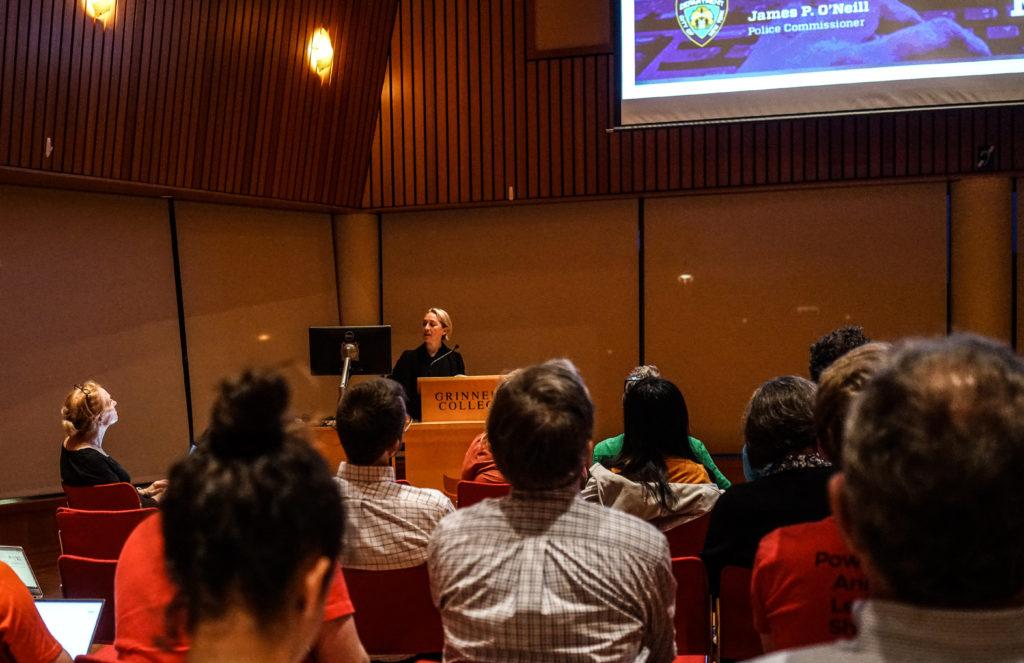This week, the Joe Rosenfield Program in Public Affairs, International Relations and Human Rights hosted “Tyranny of Data,” a symposium focusing on the plethora of data in our society and how it can be used both for virtuous and nefarious purposes.
The symposium included speakers Dipayan Ghosh, a former technology advisor for the Obama administration, Ari Berman, a journalist for Mother Jones whose work focuses on voting rights and more recently the census, as well as many other scholars and professionals who have unique perspectives on the use of data in our world.
Barb Trish, the Director of the Rosenfield Program, cited her interest in the relationship between data and power as the reason for her support of this symposium. “I’ve always been particularly interested in data,” Trish said. “We need to think below what we see on the surface – think beyond the hype.”
John Pomfret, award-winning journalist, was the second speaker at this week’s symposium. Pomfret’s event, titled “China’s Social Credit System: Orwell or Not?” closely ties in with the relationships between power and data existing in our modern world.
Pomfret boasts a rich history with China. Of the twenty years that he spent as a foreign correspondent, seven of them were spent in China. During his time there, he covered the Tiananmen protests. Later, Pomfret became the Beijing Bureau Chief for the Washington Post. Currently, he serves as a contributing opinion writer to the Post’s Global Opinions section.
Additionally, Pomfret has published two books. Chinese Lessons: Five Classmates and the Story of New China was released in 1996, and his latest book, The Beautiful Country and the Middle Kingdom: America and China, 1776 to the Present, was published in 2016.
To begin, Pomfret shared a story he heard while in China. The story told of a woman who jaywalked on her way to work. She was stopped by two police officers who demanded her identification, which she did not have. The officers simply took a picture of her, and within seconds they had her personal information pulled up on their computer. The woman was given a ticket. If she didn’t pay, her picture would be posted on LED boards throughout the city.
So began the introduction to China’s social credit system. The system functions much like how credit scores in the United States function. If a Chinese citizen breaks a law, their score will decrease. If they honor a contract, however, their score will go up. In refusing to pay the ticket and having her face projected onto an LED board, the woman’s social credit would decrease. Having a lower social credit score makes certain things difficult for Chinese citizens, such as traveling or buying homes.
Pomfret detailed several consequences of this system. Some of them were positive, such as the streets of Shanghai becoming quieter, as being too loud could lower one’s credit score. However, the example that Pomfret focused on was how the social credit system has been implemented in the Xinjiang province, in northwest China.
Xinjiang has a large population of ethnic minorities, who have been oppressed by the social credit system. They are monitored by various technologies in everything they do. People who resist this monitoring are either jailed or put into “re-education centers.” As Pomfret put it, China has created a “twenty-first century police state” in the Xinjiang province.
However, the effects of the social credit are not all negative. According to Pomfret, the system has been put into use to monitor environmental factors. Blue Map, an app, allows Chinese citizens to upload pictures of pollution in an area. This data is used to help promote a cleaner environment. As this example shows, everything in China is not Orwellian, yet Pomfret warns to “bear in mind the totalitarian instincts of the Communist Party.”
The audience for the event was diverse, with people of all ages and all backgrounds in attendance. Everyone had their own unique reasons for attending the event as well. Madeline Nelson ’20 cited a trip to China, where she had noticed alarming pieces of technology being used to monitor the public.
When asked what she took away from the event, Emma Hastie ’23 pointed out that everyone could be more cognizant about how data is used in the world and who is monitoring online activity.
This symposium is just one of many events that the Rosenfield Program puts on over the course of the year. There will be others later in the year, each with its own unique theme and with different lessons to be learned.
























































